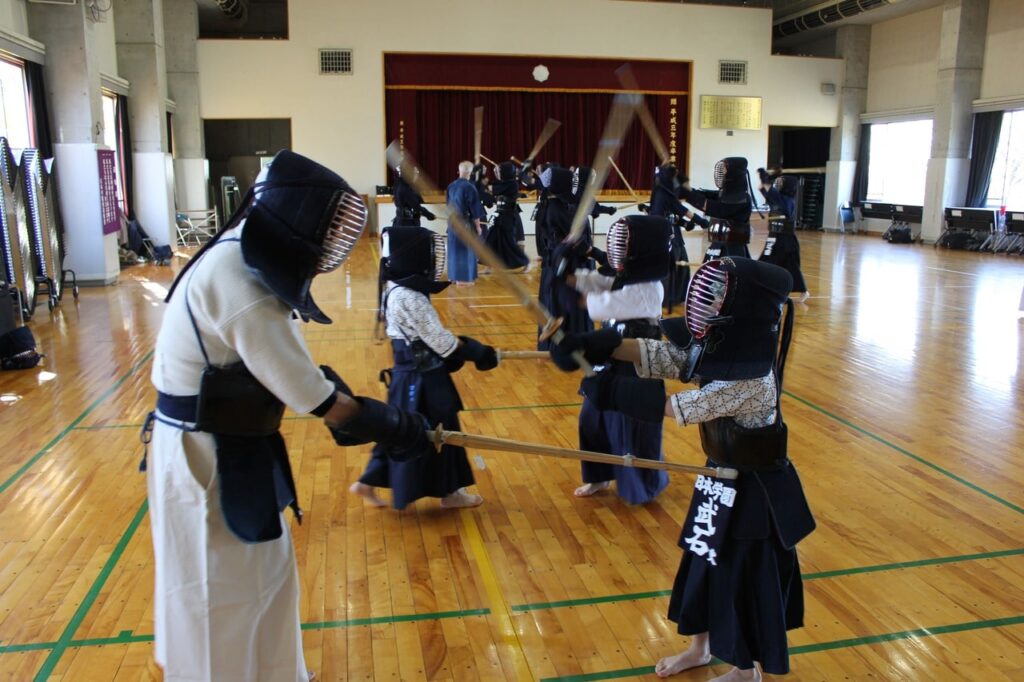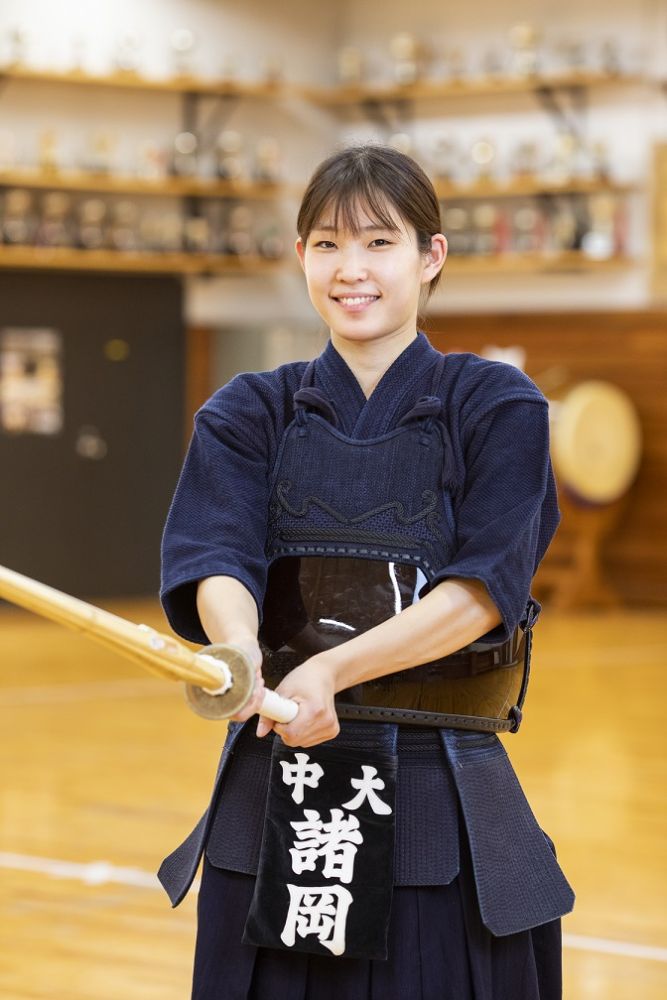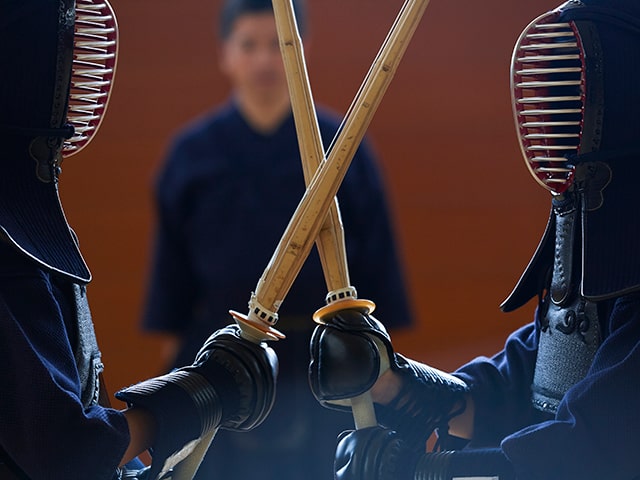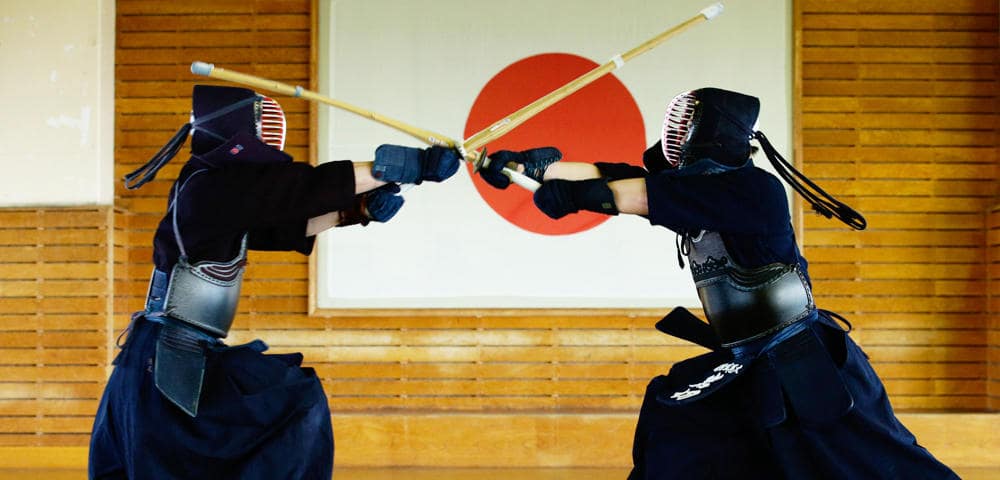
The Japan National Kendo Team is a group of selected swordsmen who compete on behalf of Japan on the international stage.
They not only have Kendo skills, but also mental strength and leadership, and will face off against strong players from around the world.
This article focuses on the profiles of the current members of Japan’s Kendo national team, their achievements in Kendo, and how the players are performing in international competitions.
We will also delve into the player selection process and how kendo influences the lives and careers of individual players.
Even if you’re not a Kendo fan, you’ll be impressed by the story behind the sport.
目次
- 1 Introduction: Importance and role of the Japanese Kendo representative
- 2 Selection process and criteria for Japanese national team players
- 3 Profiles and careers of modern table players
- 4 Famous Japanese Kendo players of all time
- 5 International competition results of the Japanese Kendo representative
- 6 Future prospects and challenges
- 7 Summary: The international role of the Japanese Kendo representative and future expectations
Introduction: Importance and role of the Japanese Kendo representative
Being selected to represent Japan in Kendo is not just an honor, but also a great responsibility.
The representative athletes play a role in showing not only Kendo techniques, but also Japanese culture and tradition to the world.
In this role, I am expected to be actively involved in not only domestic and international competitions, but also cultural exchange and the spread of Kendo.
Honor and responsibility as a representative of Japan in Kendo
Being selected as a member of Japan’s Kendo National Team is proof that one’s Kendo skills are at a high level both domestically and internationally.
However, more than that, every action you take as a representative shapes the image of the entire Kendo world, so you are required to always act as a role model.
Representative athletes have a responsibility not only to demonstrate their best techniques in the competitive arena, but also to embody the ideals of Kendo in their words and actions in public.
Cultural mission of national team players
The Japan Kendo National Team serves as cultural ambassadors demonstrating sportsmanship and the ethics of Kendo to the international community.
Kendo’s philosophy includes the elements of respecting others and self-discipline, and demonstrating this on the international stage contributes to the promotion of understanding and respect for Japanese culture.
Another important mission of the national team is to spread the spirituality and aesthetics of the martial art of kendo through performances at international tournaments.
This creates new connections between people from all over the world and opportunities for international friendship and understanding.

Selection process and criteria for Japanese national team players
The selection of Japanese Kendo athletes is based on strict criteria and a thorough process.
This process is designed to comprehensively evaluate technical skill, competitive performance, and spiritual maturity in Kendo.
Overview of player selection criteria and process
Performance in domestic and international competitions is an important factor in the process of selecting Kendo athletes to represent Japan.
In particular, performance at the All Japan Kendo Championships and other tournaments sponsored by the All Japan Kendo Federation will be evaluated.
Selection is carried out through multiple stages, and not only the technique, but also the mental fortitude in the game, the ability to apply tactics, and the ability to respond to opponents are strictly checked.
In addition, training camps and special training sessions conducted by All Japan Kendo Federation instructors and selection committees will also be part of the selection process, testing the athletes’ continued growth and adaptability.
Qualities and abilities required of national team players
In order to be selected to represent Japan, a person must not only have high technical ability, but also be able to embody the ethics and spirit of Kendo.
This includes high mental fortitude, perseverance, and self-control.
Representative athletes must demonstrate exemplary behavior, respect the spirit of Kendo, and maintain a respectful attitude even on the international stage.
Communication skills that promote teamwork and show respect in cross-cultural interactions are also important.
These qualities represent not only technical but also human maturity and are essential in fulfilling the role of an international representative.

Profiles and careers of modern table players
Below is an overview of the profiles and careers of the current Japanese Kendo players.
Japan men’s national team members :
- Sho Ando (captain): Graduated from Kokushikan University, 33 years old. Currently enrolled at Kokushikan University.
- Rentaro Kunitomo : A member of the Fukuoka Prefectural Police, 33 years old. Graduated from Kokushikan University.
- Yuki Tsuchiya : 32 years old, belongs to the Osaka Prefectural Police. Graduated from Kokushikan University.
- Yuya Takenouchi : 30 years old, belongs to the Metropolitan Police Department. Graduated from University of Tsukuba.
- Keita Miyamoto : 28 years old, belongs to the Metropolitan Police Department. Graduated from Kokushikan University.
- Ryujiro Kusano : 28 years old, belongs to the Osaka Prefectural Police. Graduated from Kanoya University of Physical Education.
- Keita Hoshiko : 25 years old, belongs to the Metropolitan Police Department. Graduated from University of Tsukuba.
- Kenshiro Matsuzaki : University of Tsukuba, 25 years old. Graduated from University of Tsukuba.
- Shoji Ohira : 23 years old, belongs to the Metropolitan Police Department. Graduated from University of Tsukuba.
- Keito Kimura : Member of the Osaka Kendo Association, 22 years old. She is a graduate of Kanoya University of Physical Education.
Japan women’s national team members :
- Tai Watanabe (Captain): 31 years old, belongs to Kumamoto Prefectural Police. Graduated from Nippon Sport Science University.
- Mari Suenaga : Belongs to Wakayama Prefecture, 35 years old. She is from PL Academy.
- Yoshihiro Kondo : 30 years old, belongs to the Metropolitan Police Department. Graduated from Hosei University.
- Moeko Takahashi : A member of the Kanagawa Prefectural Police, 30 years old. She is a graduate of Hosei University.
- Chika Matsumoto : A member of the Kanagawa Prefectural Police, 27 years old. She is a graduate of Kanoya University of Physical Education.
- Minori Sato : 26 years old, belongs to the Metropolitan Police Department. Graduated from Hosei University.
- Miho Takenaka : Member of the Tochigi Sports Association, 26 years old. She is a graduate of Tsukuba University.
- Maika Seno : 23 years old, belongs to the Fukuoka Prefectural Police. She is a graduate of Kanoya University of Physical Education.
- Yoshina Kawai : University of Tsukuba, 21 years old. She is a fourth year student at the University of Tsukuba.
- Haruna Mizukawa : A member of Hosei University, 21 years old. She is a fourth year student at Hosei University.
Through their passion and dedication to Kendo, these athletes achieved outstanding results in numerous domestic and international competitions and were selected to represent Japan.
You can find out more about their profiles and careers in the LET’S KENDO article .
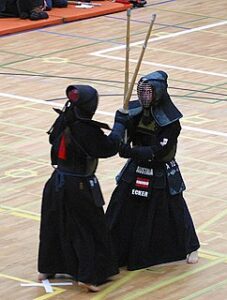
Famous Japanese Kendo players of all time
In the world of Kendo, many athletes have made their mark on history with their skill and spirit.
In particular, the players who represented Japan have achieved outstanding results in competitions both domestically and internationally, and have influenced many swordsmen not only in their technical skills, but also in their spiritual aspects.
Players who left their mark on history
Many of the players who represent Japan have won the All Japan Kendo Championships and the World Kendo Championships.
These athletes are known for their high technique and calmness in competition, and are considered role models for many young swordsmen.
Particularly influential athletes include swordsmen who won many tournaments in a row, and swordsmen who raised Japan’s honor on the international stage.
There are many famous kendo players of all time who have made great contributions to the development of kendo.
Particularly influential athletes are those who popularized the techniques and philosophy of Kendo and greatly influenced its training methods and competition rules.
For example, Shusaku Chiba (1792-1855), one of the central figures in shaping the early forms of kendo, is known as the founder of the Hokushin Itto-ryu school, and is known not only for its techniques but also for its philosophy and spiritual aspects. It had a big impact. He introduced practical technical training and established an educational approach to enhance the spirituality of Kendo ( Encyclopedia Britannica ) .
Munenori Yagyu (1571-1646) was also a person who had a great influence not only on Kendo but on Japanese martial arts in general. His “Hyohoka Densho” describes not only swordsmanship, but also the way of life and spirituality of a samurai, and has had a great influence on later generations of kendo instruction ( Ancient Origins ) .
These athletes are known for their contributions to the formation of Kendo culture, not only in its technical aspects, but also in its spirituality, philosophy, and educational methods.
The teachings they left behind have been passed down by many Kendo practitioners to this day, contributing to the development of modern Kendo.
Their influence on the Kendo world
These kendo players have played a role not only in improving kendo techniques, but also in spreading the culture of kendo around the world.
Their fighting style, attitude toward training, and instruction in the dojo have had a great influence on today’s Kendo techniques and educational methods.
Furthermore, the attitude of “valuing civility and always respecting others”, which symbolizes the spirit of Kendo, is a fundamental value that many swordsmen have learned and continue to uphold.
The high standards of spirituality and technique established by these athletes are essential elements for the future development of Kendo.
For the specific names and achievements of these players, further research and literature can be consulted to gain a deeper understanding of their place and influence in Kendo history.
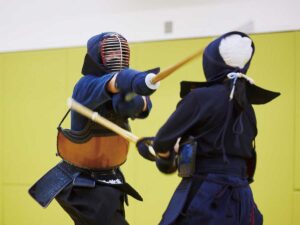
International competition results of the Japanese Kendo representative
The Japanese national kendo team has achieved outstanding results in international competitions for many years.
In particular, the Japanese team has won many gold medals at the World Kendo Championships, and their excellent technique and spirituality have been highly praised.
Results from recent World Championships and Asian Games
At the recent World Kendo Championships, the Japanese team won gold medals in both the men’s and women’s team events.
This shows not only their kendo technique, but also their team cohesiveness and strategy.
Additionally, Japan has consistently ranked high in the Asian Games, showing off its strength in both individual and team competitions.
Evolution of the Japanese national team’s strategy and tactics
The Japanese national team’s tactics, while based on traditional techniques, have evolved in recent years by incorporating more scientific training methods and data analysis.
For example, tactics have been adopted to analyze the movements in a match in detail and identify the opponent’s weaknesses.
We also focus on psychological training to enable our employees to perform at their best even under intense pressure.
As a result, the Japanese national team has been able to maintain their technical superiority while maintaining a strong mentality even under pressure on the international stage.
These advanced tactics and strategies have supported the success of the Japanese national team in international competitions, and their tradition and innovation will continue to have a significant impact on the world of kendo.
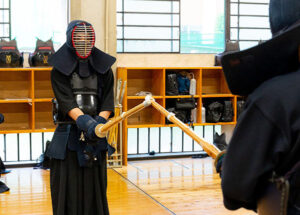
Future prospects and challenges
Kendo has become widely recognized internationally and is practiced in many countries and regions.
In the future, strategies are needed to further improve Kendo’s standing on the international stage and to discover and develop new talent.
Efforts to improve the status of Kendo on the international stage
In order to improve Kendo’s international status, it is important to improve the quality of international tournaments and create an environment that makes it easier for more countries to participate.
This includes further strengthening the International Kendo Federation and deepening collaboration with national Kendo associations.
In addition, by spreading the spirituality and philosophy of Kendo internationally, we can deepen its recognition not only as a sport but also as a martial art with cultural value.
One way is to hold regular international seminars and workshops to share not only the techniques of Kendo, but also the culture and spirit behind it.
Discovery and development strategy for new talent
In order to discover and develop new Kendo talent, it is essential to increase interest in Kendo among young people.
It is important to enhance kendo programs in schools and local communities and create an environment where children can easily take up kendo.
It is also necessary to develop top-level coaches and instructors so that they can provide advanced technical and spiritual guidance to young swordsmen.
Encouraging active participation in domestic and international competitions, allowing young swordsmen to experience a variety of fighting styles, and developing the ability to compete at an international level should also be promoted as part of talent development.
Through these efforts, it is hoped that kendo will further increase its value on the international stage and that a new generation of talent will continue to be nurtured.
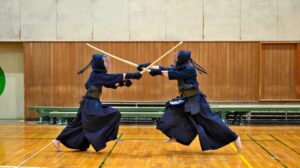
Summary: The international role of the Japanese Kendo representative and future expectations
The Japanese national kendo team is promoting the traditional Japanese martial art of kendo to the world and demonstrating its prestige on the international stage.
They are tasked with transmitting not only the techniques but also the deep cultural values and spirituality of Kendo to the international community, which has a great influence on Kendo enthusiasts and culture enthusiasts around the world.
Kendo’s influence and cultural value on the world
Kendo has influenced many people around the world not only for its technical aspects, but also for its philosophy of etiquette, respect, and spiritual growth.
Through international competitions and cultural exchanges, Kendo functions as a bridge for understanding different cultures and fosters a spirit of respect for the world’s diversity.
These values provided by Kendo contribute to the promotion of international peace and mutual understanding through sports and cultural activities.
The importance of continuous growth and contribution as a national team player
Being selected to represent Japan in Kendo is a great honor for each individual athlete, and requires continuous growth and self-transcendence.
By continuing to grow technically and mentally, these athletes will not only improve their Kendo techniques, but also contribute to the continued spread and development of the Kendo culture.
They also serve as role models and instructors for the next generation of kendo players, so their educational influence is extremely large.
The Japanese national kendo team is expected to continue to lead the kendo world in terms of both technique and spirituality, with the aim of spreading kendo worldwide and expanding its cultural value.
